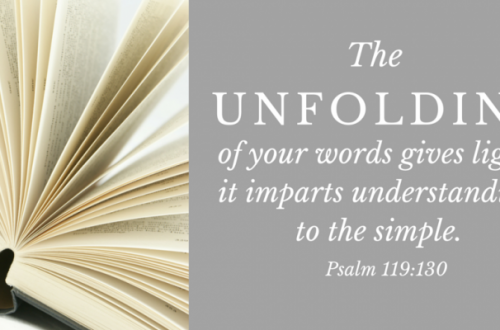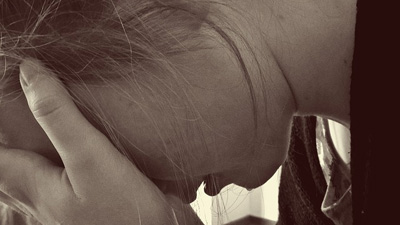Voting at the Edge of the Hurricane
While hurricane Sandy was chugging north off the east coast last Sunday we were headed south, hugging the Appalachian mountains through Virginia then cutting through central North Carolina to our home in Columbia, central South Carolina. Skirting the edge of Sandy’s windfield our experience of the deadly hurricane was limited to overcast skies, winds at 15 miles per hour and passing fleets of utility trucks headed north. On Friday we had spent the day at Thomas Jefferson’s Monticello, his stately home engraved on the back of every US nickel. One day before Sandy hit and one week before the election Thomas Jefferson’s world and words spoke profoundly to both national events.
While hurricane Sandy was chugging north off the east coast last Sunday we were headed south, hugging the Appalachian mountains through Virginia then cutting through central North Carolina to our home in Columbia, central South Carolina. Skirting the edge of Sandy’s windfield our experience of the deadly hurricane was limited to overcast skies, winds at 15 miles per hour and passing fleets of utility trucks headed north. On Friday we had spent the day at Thomas Jefferson’s Monticello, his stately home engraved on the back of every US nickel. One day before Sandy hit and one week before the election Thomas Jefferson’s world and words spoke profoundly to both national events.
You cannot walk past Jefferson’s bed right there next to his desk, through his shelves of books in Latin, Greek, Spanish, Italian, French and English, past his inventions (a double-pen letter copying machine, a clock that marked hours and days of the week), you cannot read his soaring prose (he wrote the Declaration of Independence when he was thirty-three) without marveling at the breadth and depth of his intellect.
He regarded himself as a farmer and a scientist. On the stone marker over his grave at Monticello he requested that only three accomplishments be commemorated: “Author of the Declaration of American Independence, of the Statute of Virginia for religious freedom, Father of the University of Virginia.” No mention of “President.
Yet for all his ideals– “all men are created equal” and are endowed by their Creator with the inalienable right to liberty– Jefferson was the owner, over the course of his life, of over 650 slaves. As we walked Mulberry Row, just down the hill from his residence, we saw the foundations of their cabins, the remains of carpentry and blacksmith shops, a dairy and other places of labor. We heard stories of the 10-year old slave boys who worked in his nail factories. Of the children that DNA testing indicate came from his union with his slave, Sally Hemmings.
While George Washington and other founders eventually freed their slaves, Jefferson only freed seven. He needed them to farm his plantations. He needed them to support his lifestyle. He lived way beyond his means and died with a million dollar’s worth of debt.
The Monticello museum explained, While “successful in outlawing the international slave trade to Virginia, he was disappointed by the failure of his early efforts to end or restrict slavery, and came to believe that a practicable solution to the problem could not be found in his lifetime.” Jefferson could see the injustice, tried to fix it, but wound up voting his pocket book and kicking the can down the road. No “practicable solution” was ever found. It took a war to bring our practice in line with our identity as a nation of free and equal people.
This election, we are told, is about jobs, jobs, jobs. Who can create the most jobs? We do not have much discussion about the deadly storm of debt swirling just offshore, the root causes of our loss of jobs and the shrinking of our pocket books. Our country is so divided over how to respond to the storm (without diminishing our lifestyle) that candidates tend to focus on secondary issues to win enough consensus to get elected. Or they appeal for fairness and everyone deserving a fair shot. This is an appeal for government to use force to compel the redistribution of wealth.
Thomas Jefferson’s words are instructive: "The democracy will cease to exist when you take away from those who are willing to work and give to those who would not." "I predict future happiness for Americans if they can prevent the government from wasting the labors of the people under the pretense of taking care of them."
The problem with “fairness” is Who decides how much “care” is fair? Is the current level of redistribution–a trillion of our tax dollars in welfare–fair enough? Should the government compel us to care more? To buy health insurance? Should the government compel Wheaton University to pay for morning-after abortion pills to care for its employees? Yet we don’t engage in a careful discussion of these larger issues. We are more focused on our pocket books. Jobs.
In God’s economy actions matter, but motives matter more. On Tuesday I will vote, quite possibly to my own harm considering my need for insurance, to honor life and liberty. I will vote to help the poor in ways that do not encourage dependency, but independence.
Just like Jefferson we cannot kick the can down the road indefinitely. Jefferson kicked it to his daughter and her family. Theirs was the heart-breaking task of selling his collections and treasures. Selling all his slaves. Peter Fossett was eleven years old when he was sold at the sale. Later he recalled that he was “born and reared as free, not knowing I was a slave, then suddenly . . . put upon an auction block and sold to strangers.” The hurricane of debt will eventually make landfall.
Ultimately only God can deal with the hurricane of debt and expectations of a certain lifestyle whirling offshore. Or the motives of our hearts. As I pray for Tuesday I pray the words of Psalm 146:3-10:
Put not your trust in princes, in a son of man, in whom there is no salvation… Blessed is he whose help is the God of Jacob, whose hope is in the LORD his God…who keeps faith forever; who executes justice for the oppressed, who gives food to the hungry. The LORD sets the prisoners free; the LORD opens the eyes of the blind. The LORD lifts up those who are bowed down; the LORD loves the righteous. The LORD watches over the sojourners; he upholds the widow and the fatherless, but the way of the wicked he brings to ruin. The LORD will reign forever, your God, O Zion, to all generations. Praise the LORD!


